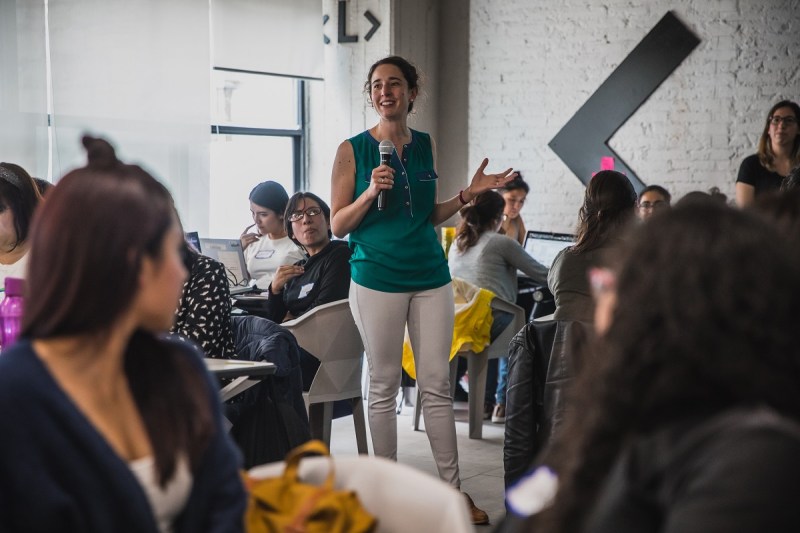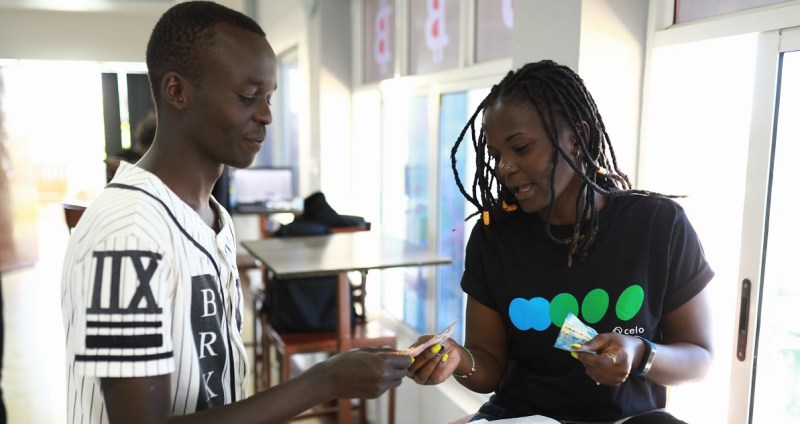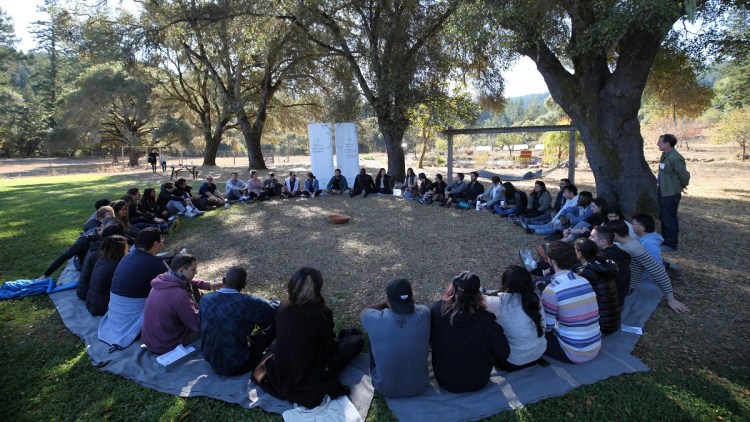The Celo Foundation is announcing the Alliance for Prosperity, a cryptocurrency network that provides a digital currency for people who can benefit from financial access and inclusion.
The foundation has support from 50 global organizations, including the Grameen Foundation (which operates banks for people with limited funds), Mercy Corps, and venture firm Andreessen Horowitz. The idea is to build financial tools for 5.6 billion smartphone owners, including those who are among the world’s poorest citizens.
Chuck Kimble, head of business development at cLabs and head of the Alliance for Prosperity, said in an interview with VentureBeat that the Celo Dollar cryptocurrency, bouyed by an open blockchain platform, could be used to eliminate delays in payments of loans for people in need or cut the fees from remittance payments for immigrants, among other uses. The idea is to bring financial stability to those who need it most.
“The announcement is really exciting for us,” Kimble said. “We’re thrilled [by] the caliber of organizations that have decided to join us in this mission, and we hope that it is a call to the world for others to join the alliance and create even more prosperity throughout the world.”
June 5th: The AI Audit in NYC
Join us next week in NYC to engage with top executive leaders, delving into strategies for auditing AI models to ensure fairness, optimal performance, and ethical compliance across diverse organizations. Secure your attendance for this exclusive invite-only event.

Above: Denisse Halm of cLabs hosts a workshop with Labratoria in Mexico City.
San Francisco-based Celo Foundation is a nonprofit supporting the developer of the Celo open blockchain platform. Blockchain is the transparent and secure decentralized ledger that serves as the backbone for digital currencies. The organizations in Celo Foundation’s network want to foster social impact and financial inclusion through the use of blockchain technology.
As part of these efforts, Alliance Members — which include technology providers, nonprofits, mobile wallets, payment processors, and global investment firms — will build mobile-friendly financial tools on top of the Celo open blockchain platform. The Alliance’s goal is to enable more people to use digital currencies — empowering anyone with a phone number to move toward a secure future.
The Celo Dollar is perhaps a more open alternative to Facebook’s Libra, which was criticized by regulators and rivals for being controlled by the social media giant. The Celo Dollar is intended to be a stablecoin, or one where the price doesn’t fluctuate based on market volatility. With Celo, you could send a dollar from New York to Manila for a penny, Kimble said.
“I think the similarity with Libra is that we share a similar mission,” Kimble said. “We both want to help create prosperity, but I think there are many differences. Ours is decentralized. It’s a completely decentralized collective of mission-aligned organizations. There’s no central governing body to determine how Celo will evolve, and people will be able to vote on how Celo evolves.”
The members have a combined global reach of hundreds of millions of people. The group will focus on social impact use cases, including powering mobile and online work, enabling faster and affordable remittances, reducing the operational complexities of delivering humanitarian aid, facilitating payments, and enabling microlending. While each member’s contributions will be unique, their combined efforts will leverage the benefits of blockchain technology to make it easier to move digital currencies across borders and create accessible financial tools for everyone. Everything from cash transfer programs to peer-to-peer lending should benefit.

Above: Participant cashing out earnings in a pilot test in Kenya.
In celebration of the launch and as a demonstration of its commitment to financial inclusion, the Alliance will be awarding small bounties, #ProsperityGifts, to qualified applicants anywhere in the world who share great ideas for positively impacting their local communities.
“We look for new technologies to increase transparency to reduce costs and to accelerate delivery to the recipients,” said Kimble. “Celo mobile carriers can start offering remittances for a much lower cost than many alternatives in the market today,” he added. “We also are working with some of the largest humanitarian aid organizations — like Mercy Corps, [which] disseminates billions of dollars in aid each year.”
Here’s the list of members: Abra, Alice, AlphaWallet, Anchorage, Appen, Ayannah, Andreessen Horowitz, B12, BC4NB (Blockchain for the Next Billion), BeamAndGo, Bidali, Bison Trails, Blockchain Academy Mexico, Blockchain.com, Blockchain for Humanity (b4h), Blockchain for Social Impact (BSIC), Blockdaemon, Carbon, cLabs, CloudWalk Inc, Cobru, Coinbase Ventures, Coinplug, Cryptio, Cryptobuyer, CryptoSavannah, eSolidar, Fintech4Good, Flexa, Gitcoin, GiveDirectly, Grameen Foundation, GSMA, KeshoLabs, Laboratoria, Ledn, Maple, Mercy Corps, Metadium, Moon, MoonPay, Pipol, Pngme, Polychain, Project Wren, SaldoMX, Semicolon Africa, The Giving Block, Utrust, Upright, Yellow Card, and 88i.
Celo was started by MIT graduates Rene Reinsberg, Sep Kamvar, and Marek Olszewski in 2017 and has more than 60 employees. Andreessen Horowitz was among the investors who helped get it off the ground.
“They saw an opportunity to use blockchain to democratize financial services, but they thought it was a little too complex for most people,” Kimble said. “So they decided to abstract the complexity and create a new blockchain that was more accessible to everyone. And that was how the company started.”


